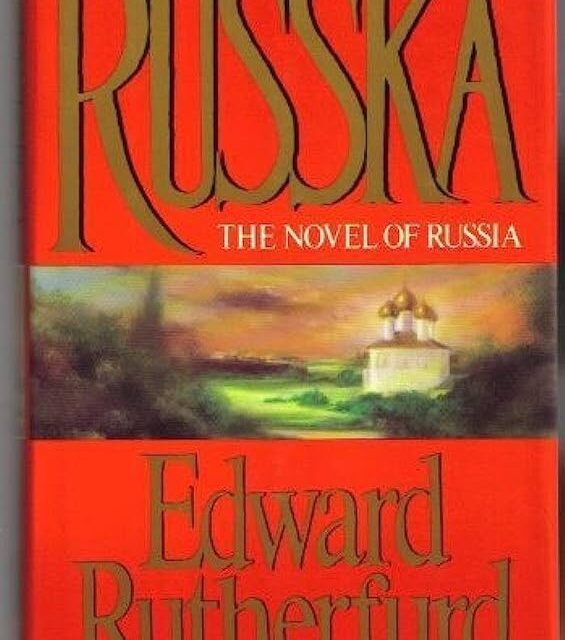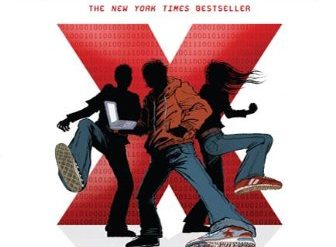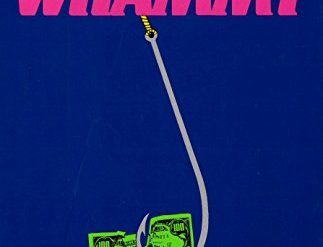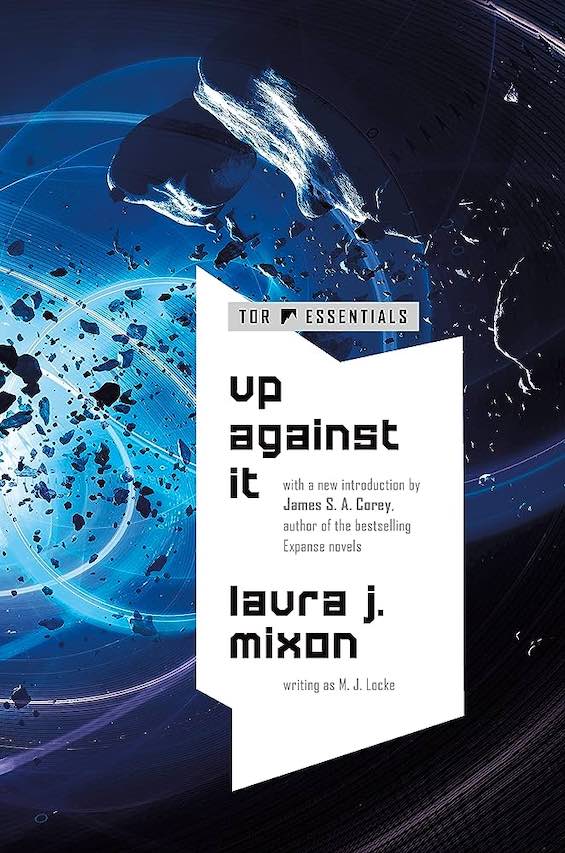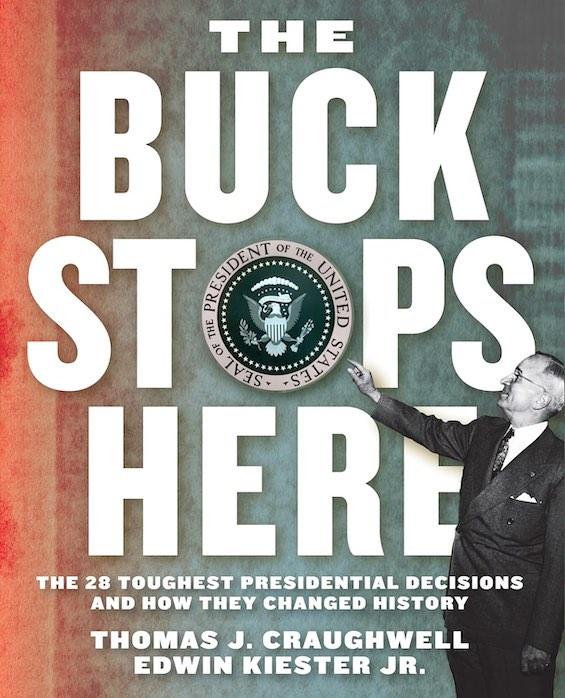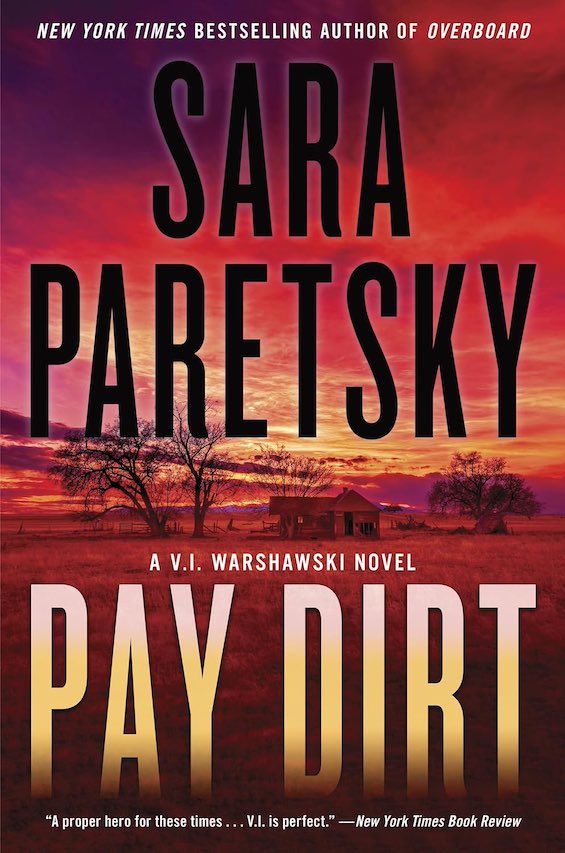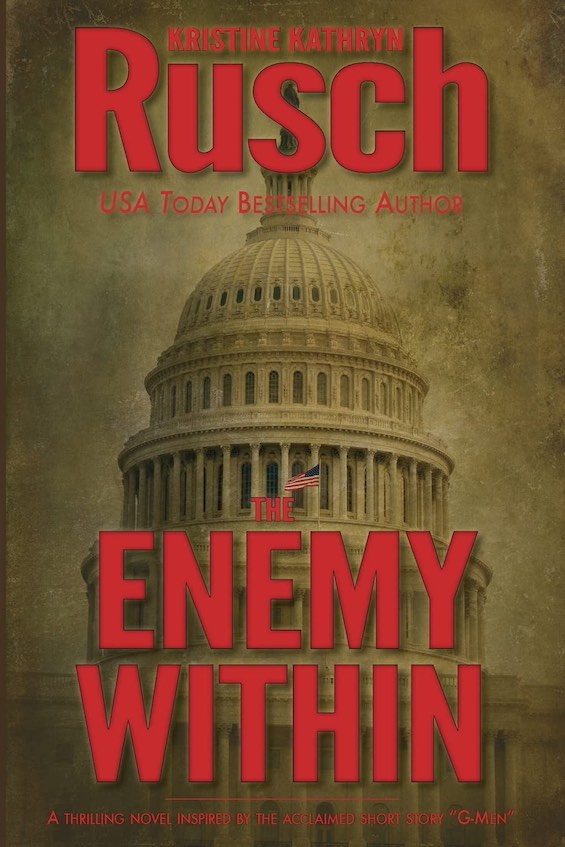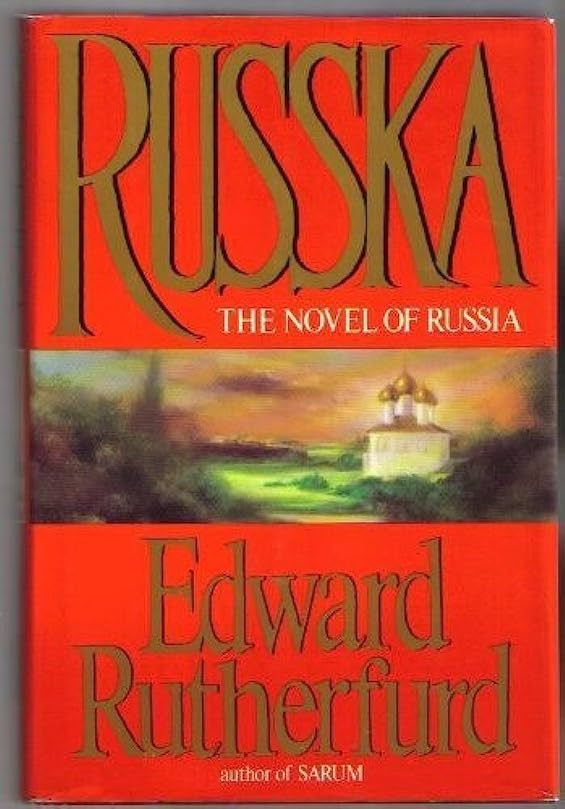
No country on Earth can boast a more tumultuous history than Russia. Born in the clash of marauding nomadic tribes nearly 2,000 years ago, this sprawling Euro-Asiatic nation has witnessed repeated bouts of foreign incursions, ethnic conflict, revolution, and a millennium of autocratic, and often heartless, rule. To portray the grand sweep of Russian history in fiction seems an impossible task. But the British novelist Edward Rutherfurd has managed to do so to a remarkable degree in just under 1,000 pages in Russka.
Estimated reading time: 5 minutes
Four families embody the ups and downs of Russian history
Rutherfurd traces the intertwined lives of four families over the 1,800 years during which the Russian state has come to formed. The action frequently shifts from Kiev, to Moscow, to St. Petersburg, but the story’s center of gravity lies in a small village called Russka. All four families—the Bobrovs, Suvorins, Karpenkos, and Romanovs—trace their roots there.
Their faces, and their lives, reflect their different ethnic origins, which remain visible after centuries of intermarriage. Turkic. Mongol. Finnish. Ukrainian. And we witness the evolution of the peasantry, their descent into serfdom, and their slow emergence from virtual slavery to a semblance of freedom. Meanwhile, the Bobrovs rise to the aristocracy and fall in the Revolution. The Suvorins struggle up from serfdom to great wealth as merchants, then lose it all. A Karpenko gains fame as a poet. The Romanovs—unrelated to the ruling dynasty—gain a foothold as wealthy peasants, only to fall victim to Revolutionary terror.
Russka by Edward Rutherfurd (1980) 960 pages ★★★★☆
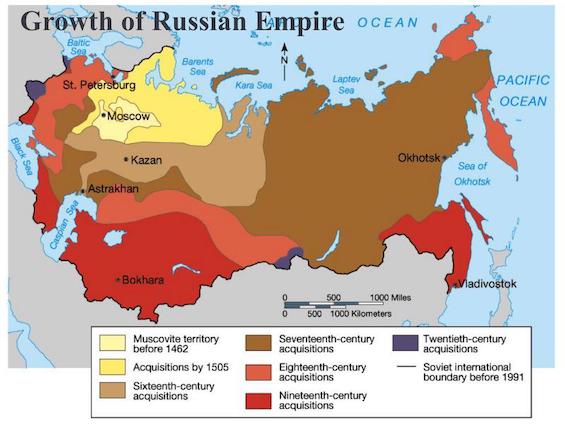
An easy-to-read guide to Russian history in fiction.
The boldfaced names of Russian history appear throughout. The first Tsar, Ivan the Terrible, who centralized the Russian state and built an empire in the 16th century. Peter the Great, the 17th-century modernizer who expanded the empire and built the new capital of St. Petersburg. Catherine the Great, the 18th-century German princess who overthrew her husband and gained the throne, then further expanded the empire and dragged the country into embracing European ways. Nicholas II, the last Tsar, whose stubbornness and ineptitude left Russia in the hands of the Bolsheviks. And the revolutionaries themselves, Lenin, Trotsky, and Stalin. They’re all there as the centuries slip by, with chapters spaced years or decades apart from the 11th century to the 20th. Russka is a triumph of historical fiction grounded in what is obviously the most diligent research.
About the author
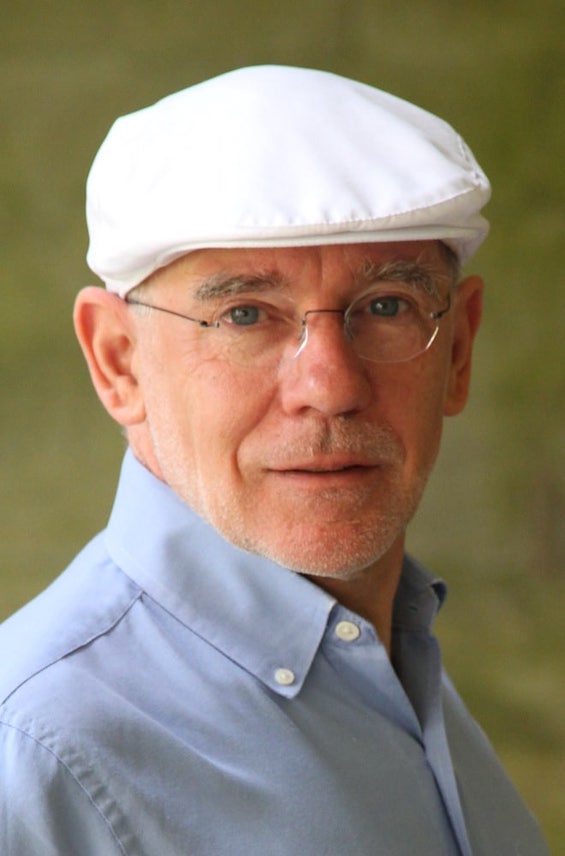
On his author website, Edward Rutherfurd writes that he “was born in England, in the cathedral city of Salisbury. Educated locally, and at the universities of Cambridge, and Stanford, California, he worked in political research, bookselling and publishing. After numerous attempts to write books and plays, he finally abandoned his career in the book trade in 1983, and returned to his childhood home to write Sarum, a historical novel with a ten-thousand year story, set in the area around the ancient monument of Stonehenge, and Salisbury.
“Four years later, when the book was published, it became an instant international bestseller, remaining 23 weeks on the New York Times Bestseller List. Since then he has written five more bestsellers: Russka, a novel of Russia; London; The Forest, set in England’s New Forest which lies close by Sarum, and two novels which cover the story of Ireland from the time just before Saint Patrick to the twentieth century. In 2009 New York was published . . . His books have been translated into twenty languages.” Since Rutherfurd posted this bio, he has published two further books, Paris and China.
“Over the last thirty years, Edward has divided his time between Europe and New York. He has lived on the city’s East Side, the west side, in Westchester and Connecticut. His children attended New York schools, and he served for a time on a coop board.”
Rutherfurd was born in 1948 with the name Francis Edward Wintle. The name on the cover is a pen name.
For related reading
I’ve also reviewed two other novels by Edward Rutherfurd:
- New York: The Novel (An epic historical novel about New York City)
- China (Chinese history made fun and easy in a compelling novel)
Although I’ve reviewed numerous novels set in 20th and 21st century Russia, Russka is the first that deals with earlier Russian history. However, you may be interested in Good books about Vladimir Putin, modern Russia and the Russian oligarchy.
You might also be interested in the 20 most enlightening historical novels or the 20 top nonfiction books about history.
And you can always find my most popular reviews, and the most recent ones, on the Home Page.

